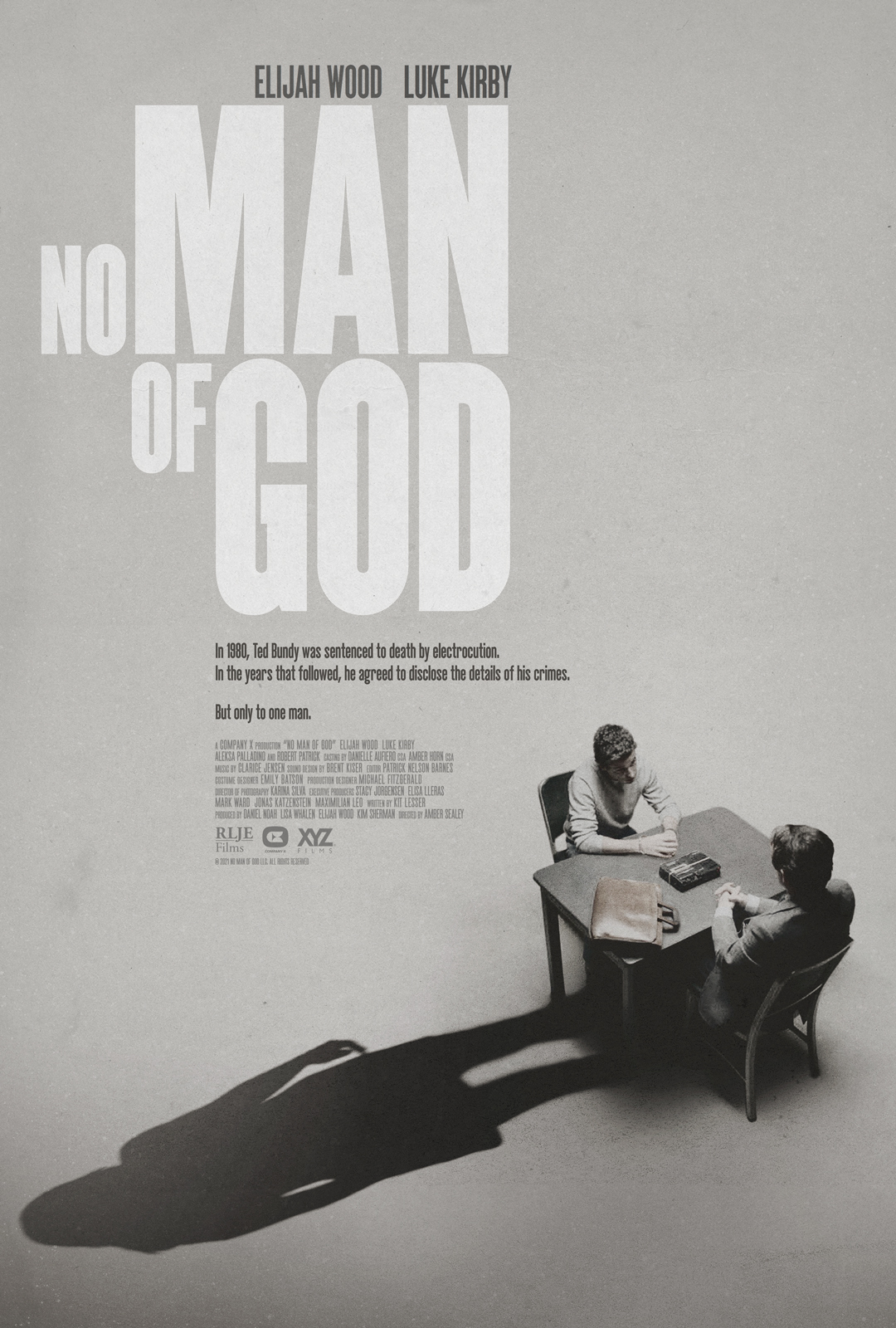No Man of God
Some would argue that it's inappropriate to make yet another movie about Ted Bundy, especially if you're going to ask audiences to sympathize with him a little bit. No Man of God gets around that by making the focus of the story Bill Hagmaier, the FBI profiler who interviewed Bundy multiple times in the final years of his life. Hagmaier (played by Elijah Wood) was part of a unit designed to “understand” serial killers, with the hope of being able to use any information they gleaned in investigations later on. Directed by Amber Sealy, the film looks at how he was able to earn Bundy's trust in order to glean such information. The result is a stagey, yet still sufficiently compelling exploration of evil.
Bundy (Luke Kirby) is already infamous for not wanting to talk to cops, feds, or anyone else associated with law enforcement. It therefore seems like a dead end for Hagmaier to even try. But try he does, and his unassuming manner intrigues the killer. They meet for several sessions. Bundy tries to coax personal details from his interviewer, Hannibal Lecter-style. Hagmaier delicately dances around this, knowing he'll have to display some honesty if he wants to make progress, while still realizing that the guy he's talking to may try to use anything he says against him.
A large portion of No Man of God is the two of them sitting in a room talking. Smart dialogue keeps us hooked, despite a lack of traditional action. A push/pull dynamic arises between the men. Bundy is constantly assessing how deep he wants to get. Some days he's more open than others. Hagmaier, meanwhile, is continually tempering his responses, trying to avoid pushing so hard that he meets resistance. Looming over that is the promise that Bundy will some day take him “under the water,” i.e. revealing what truly goes through his mind when brutally murdering someone. The film is based on their actual discussions, which gives it an undeniable weight.
The bottom line, however, is that this is a film where performances are key. Wood is outstanding, showing how Hagmaier's mind perpetually runs on two tracks simultaneously. On one, he's asking the questions he wants answers to. On the other, he's sizing up his subject, deciding how much he believes and thinking about how to ask the next question in a way that won't make him clam up. Also effective is the way Wood suggests his character's empathy for Bundy as a human being, despite being repulsed by the crimes he's committed.
As the notorious killer, Luke Kirby is a revelation. We tend to think of people like Ted Bundy as being monsters. At a certain level, they absolutely are. The actor could have portrayed him as nothing more, but it would have been one-note. Instead, he implies a case of cognitive dissonance inside – as though Bundy knows what he did was horrific, feels guilty for having gotten off on it, yet still maintains a warped sense of pleasure from the memories. In other words, he makes Bundy complex rather than simple. Kirby is so good, in fact, that it's difficult to imagine the movie without him.
No Man of God builds to Bundy's confession and eventual execution. Those final scenes are intense, as he spends his last hours in a nervous state. The idea is unspoken, but the film implies that he doesn't like being in the same scared-to-face-imminent-death position as his victims. The tables are turned. What happens between him and Hagmaier in those concluding scenes is indicative of what makes this film so engrossing, despite the staginess. It knows evil is complicated.
out of four
No Man of God is unrated, but contains adult language, bloody images, and disturbing discussions of murder. The running time is 1 hour and 40 minutes.
